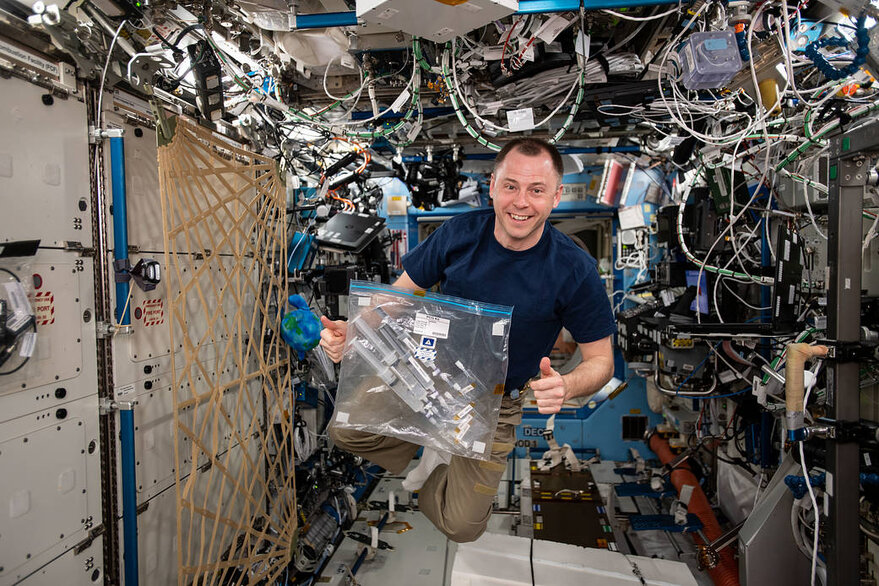SAN FRANCISCO — The Center for the Advancement of Science in Space (CASIS) announced plans Oct. 28 to work with multinational corporation Estée Lauder to solicit microgravity projects aimed at reducing plastic waste.
Through the ISS National Lab Sustainability Challenge: Beyond Plastics, CASIS is looking for applied research and technology demonstration or maturation projects that would take advantage of the unique environment of the ISS National Lab, which CASIS manages. Estée Lauder plans to provide funding to support one or more flight projects.
The Sustainability Challenge is focused on efforts to develop, test or mature products and processes to reduce the introduction of plastic waste, seek alternatives to petrochemical feedstocks and reduce virgin plastic manufacturing.
“Exposure to microgravity has been shown to change the gene expression of microorganisms, often leading to higher growth rate and increased metabolism,” Ryan Reeves, CASIS program director for advanced materials, told SpaceNews by email. “Taking advantage of these microgravity-induced effects may provide pathways to use microorganisms as living foundries for in-space biofabrication of biopolymers,” which are polymers produced by the cells of living organisms.
Reeves cited a report on biopolymer production that showed bacteria beginning to produce a biopolymer immediately upon exposure to simulated microgravity. The experiment documented enhanced bioactivity compared with a sample exposed to 1g.
“Researchers could pursue in-space production of biopolymers, study the mechanisms and biological pathways to improve terrestrial biopolymer production, or send microorganisms to be exposed to microgravity and return them to Earth for biopolymer production,” Reeves said. “Exposure to microgravity and radiation conditions in space has led to the creation of microorganism strains that exhibit increased metabolism, even when the strains are returned to Earth.”
Researchers also may opt to study catalysts.
“Microgravity has been shown to change the crystal structure of some materials, which may lead to new catalysts,” Reeves said.
New catalysts will be essential to the production of monomers and chemical feedstocks other than petrochemicals, Reeves said. Catalysts are also needed to break down recycled polymers into base monomers for upcycling to produce higher-value polymer materials, he added.
The ISS National Lab held a workshop in 2019 to discuss ways the orbiting laboratory could support efforts to address plastic pollution on Earth. The new Sustainability Challenge builds on the workshop’s recommendations.
“We are so proud to be the funding partner of this ISS National Lab Sustainability Challenge,” Stéphane de La Faverie, Estée Lauder Companies group president, said in a statement. “Our hope is this challenge will give researchers the opportunity to submit groundbreaking concepts that may one day in the near future improve Earth’s environment.”
The ISS National Lab will host a webinar on November 10 to explain Sustainability Challenge topic areas. A second webinar November 17 will focus on the submissions process.
